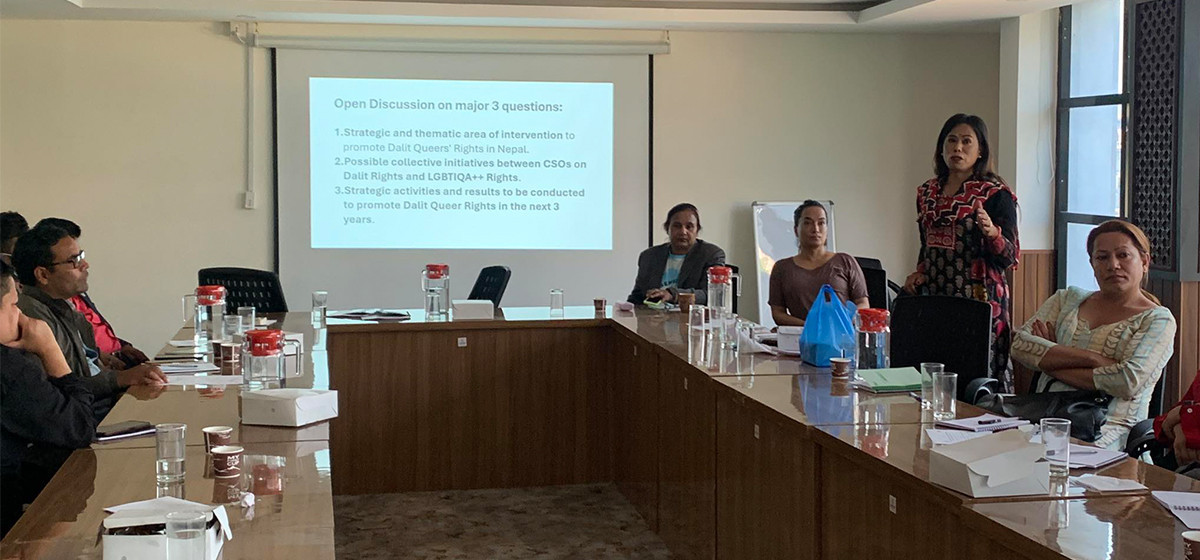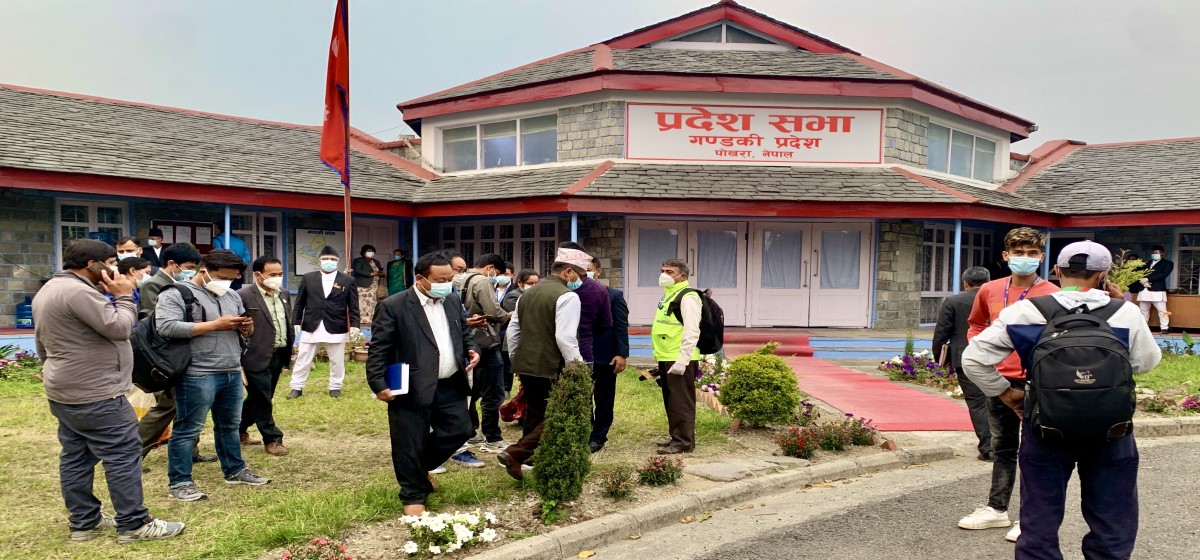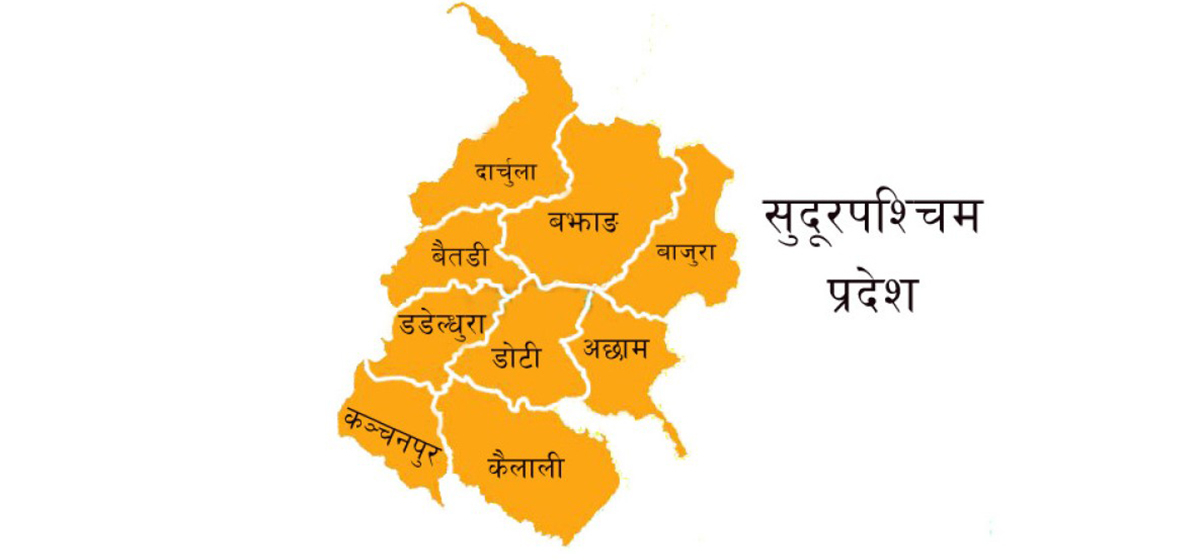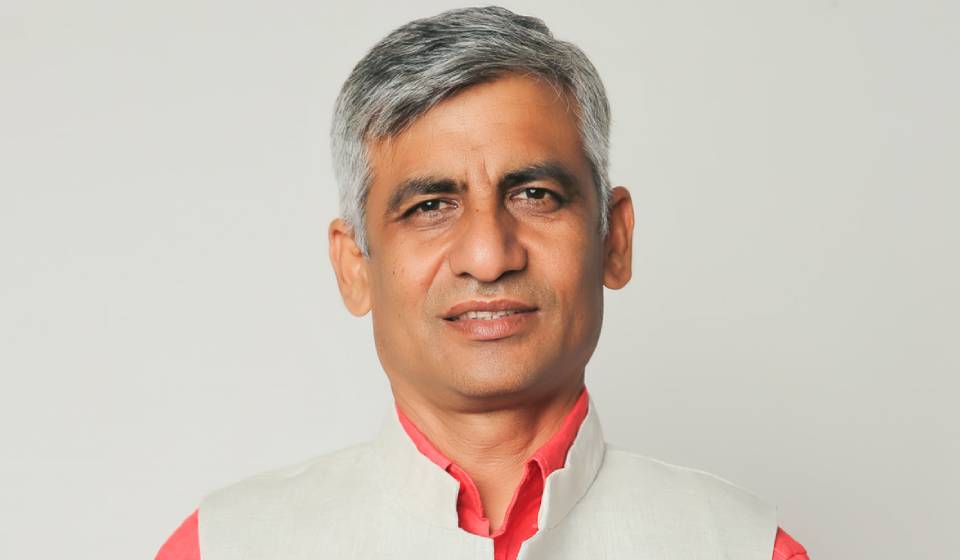
OR

Even though Nepal was declared a secular state back in 2006, successive governments have done little to institutionalize secularism. Instead, they have tried to undermine it. The new constitution is a case in point.
Article 4 (1) of the constitution says “for the purpose of this article secular means religious, cultural freedoms including protection of religion, culture handed down from ancient times.” This clearly means Hindu religion. Thus it can be argued that the constitution has actually upheld the idea of a Hindu state.
The definition of secularism is vaguer in the new constitution as compared to its definition in the Interim Constitution (2007). It is regressive in terms of protection of religions of minority communities. It seems our state actors are still under the shadow of King Mahendra who tried to establish the supremacy of one religion.
On June 9, eight persons were arrested for ‘religious conversion’ from Charikot of Dolakha district. Those arrested include a school principal, volunteers of Teach for Nepal (an NGO) and a local Pastor of Dolkha. They were in the district to provide psychological counseling to school children suffering from earthquake-related trauma. They were also there to distribute handkerchiefs and socks to poor children. The government, nonetheless, decided to round them up. This smacks of prejudice against Christian minorities.
The police have filed a case against them in district court, Dolkha, accusing them of breaching Article 26 (3) of the constitution which says that forceful conversion is punishable. But this is a false charge. In a country with 20 percent non-Hindu population, it is impossible to establish the hegemony of one religion. Even if those arrested were discussing Jesus Christ with children, even then it does not amount to a punishable crime.
Jesus is known the world over as a liberator of mankind. We teach students the virtues of Jesus in social studies. Does it mean, then, that social studies teachers who teach students about Christianity are also subject to punishment?
If religious activities are prohibited in schools why do we continue to force students to recite prayers in the name of Saraswati, the Hindu Goddess of knowledge? Even non-Hindus are made to recite such prayers.
Recently, Prime Minister KP Sharma Oli urged the Lumbini Buddhist University (LBU) to disseminate the teachings of Lord Buddha. Why can’t one spread the teachings of Jesus in a similar way?
It is clear that the government is committed to promoting Hindu religion. Recently, it funded an organization, World Hindu Federation (WHF), which has been lobbying at the international level to reinstate Nepal as the world’s only Hindu country. WHF, Nepal chapter was recently provided with financial help worth Rs two million. According media reports, this money will be used to organize conferences aimed at reinstating Hindu state. This is unconstitutional as well as immoral.
Even the head of the state has been promoting Hinduism. President Bidhya Devi Bhandari visited Janaki temple last year on Bibaha Panchami. She was accompanied by Chief of Army staff Rajendra Chhetri, Deputy Speaker of Parliament Ganga Prasad Yadav, Minister of land Reform Ram Kumar Subba, among others. The President has the right to profess her faith but the use of state machinery for this purpose makes a mockery of secularism.
After the reinstated parliament declared Nepal a secular state, the government led by late Grijia Prasad Koirala had declared Christmas a national holiday. But the Ministry of Home Affairs this year granted Christmas holiday only to Christian civil servants, much to the fury of the country’s Christian minority. The government is trying to curtail religious rights and freedoms of minority groups.
No doubt, the majority of Nepali people have followed Hinduism since ancient times. But it was only in 1962 that King Mahendra enshrined the Hindu state. He did so to acquire legitimacy for his rule from Hindus of Nepal and India, especially from then PM Jawaharlal Nehru. Thus the declaration of Hindu state in 1962 can be interpreted as politically motivated, not as an act of faith.
Rulers in Nepal have used religion to consolidate power. The Maoists once championed secularism. But now Maoist chairman Prachanda openly says that his party made a mistake by abandoning the Hindu state.
Nepal, which is known the world over as a peace-loving country, is playing a dangerous game by mixing politics with religion. Alienating religious minorities and encouraging Hindu fundamentalists will ultimately backfire.
dk7030@gmail.com
You May Like This

NC leaders in fix as calls for Hindu state grow
KATHMANDU, Dec 18: The top leadership of the main opposition party, Nepali Congress (NC), has found itself in a difficult... Read More...

RPP-N to play effective role to restore Hindu state
KATHMANDU, Nov 20: The meeting of the Rastriya Prajatantra Party-Nepal held at the residence of party chair Kamal Thapa at... Read More...

State dinner hosted in honor of Mukherjee sans state dishes
KATHMANDU, Nov 3: President Bidya Devi Bhandari on Wednesday evening hosted a state dinner in honor of her Indian counterpart... Read More...








Just In
- Dalit sexual and gender minorities lack representation within their own communities and groups
- Nagdhunga-Sisnekhola tunnel breakthrough: Beginning of a new era in Nepal’s development endeavors
- Altitude sickness deaths increasing in Mustang
- Weather forecast bulletin to cover predictions for a week
- Border checkpoints in Sudurpaschim Province to remain closed till Friday evening
- Gandaki Province Assembly session summoned
- CM Karki to Speaker: Resolution motion for vote of confidence unconstitutional
- EC reminds all for compliance with Election CoC












Leave A Comment